With fentanyl abuse becoming more and more common, Woburn Addiction Treatment in the Boston area is committed to offering individualized opioid drug rehab and treatment programs to help those overcoming their battle with fentanyl addiction.
While fentanyl and opioid addiction treatment is unique depending on an individual’s history and severity of addiction, the process typically begins with medical detox followed by a fentanyl addiction treatment program that incorporates therapeutic and educational practices to promote lifelong recovery.

What is Fentanyl?
Fentanyl is a powerful synthetic opioid pain medication that is classified as a Schedule II controlled substance due to its high potential for abuse, addiction, and even death.
In the past, opioid medications were prescribed to treat severe pain during and after surgery or to help manage pain in chronically ill patients, especially cancer patients. However, illegally manufactured fentanyl (IMF) has increasingly infiltrated the drug supply across the United States.
What sets fentanyl apart from other opioids is its incredible strength and harmful consequences; it’s estimated to be 50 to 100 times more potent than morphine and about 50 times more potent than heroin. Fentanyl works by binding to the body’s opioid receptors, which are responsible for modulating pain perception and emotions.
Today, fentanyl is found in various other drugs, ranging from heroin to counterfeit prescription pills and even marijuana. IMF is often added to substances because it is powerful and cheap, thereby increasing the potency of drugs while decreasing the price. Sadly, this dramatic spike in fentanyl abuse has contributed to a nearly 30% increase in opioid overdose deaths over the last year.

The Risks of Fentanyl Use and Abuse
Drug abuse, particularly involving potent opioids like fentanyl, poses grave risks that demand our attention. However, the escalating concern lies in its illicit use and distribution, often leading to tragic consequences as we continue to see a rise in fentanyl-related deaths.
The Substance Abuse and Mental Health Services Administration (SAMHSA) reports that the misuse of synthetic opioids, including fentanyl, has contributed to a drastic surge in opioid-related overdose deaths. Many of these deaths are attributed to illicitly manufactured fentanyl, which is often mixed with other drugs, unknowingly increasing the risk of a fatal outcome. Those who unintentionally consume fentanyl or other opioids are particularly susceptible to these dangers.
It’s essential to recognize that opioids, including prescription fentanyl alone, can lead to physical dependence and substance use disorder, reinforcing the urgency of understanding the risks associated with these substances.
The Opioid Crisis and Rise of Illegal Fentanyl
The alarming rise in the manufacture and distribution of illegal fentanyl by drug dealers has escalated the opioid crisis and concerns over its negative consequences for public health and safety. Illicitly produced fentanyl is often marketed as a “cheaper fentanyl,” contributing to its widespread appeal among individuals seeking pain relief or recreational use. This underground production bypasses quality control measures, leading to inconsistent potency levels that drastically increase the risk of fentanyl misuse and overdose.
The Drug Enforcement Administration (DEA) has repeatedly highlighted the dangers associated with purchasing drugs from illicit sources, emphasizing the unpredictability of the substances obtained. Consumers may believe they are obtaining genuine prescription medications, but instead of prescription opioids, they could be unknowingly consuming a lethal dose of illicitly manufactured fentanyl or other dangerous substances. As such, the purchase and consumption of illegally produced fentanyl significantly heightens the risk of opioid-related overdose deaths and the development of substance use disorders.
As we address this pressing issue, it’s crucial to approach it with empathy and education. Individuals struggling with chronic pain must be made aware of alternative pain management strategies and the potential risks of substance abuse.
Medical Detox for Fentanyl Addiction
As an opioid, fentanyl is mentally and physically addictive. Just hours after a person takes their last dose, they will go into opioid withdrawal. Fentanyl withdrawal is characterized by flu-like symptoms that can range from mild to severe. In order to effectively address the physical and psychological symptoms that can arise during withdrawal from fentanyl, it is important to seek out a professional fentanyl rehab that offers a medical detox program.
Opioid Withdrawal Symptoms

Fentanyl and opioid withdrawal can bring about a range of physical and psychological symptoms, which can be intense and distressing. The severity and duration of opioid withdrawal symptoms can vary depending on factors such as the individual’s level of dependence, the duration of opioid use, and the specific opioid involved. Here are some common symptoms associated with fentanyl and opioid withdrawal.
Physical Symptoms of Fentanyl Withdrawal
- Flu-like Symptoms: These can include muscle aches, chills/cold flashes, sweating, and runny nose.
- Gastrointestinal Distress: Nausea, vomiting, diarrhea, and abdominal cramps are common.
- Yawning: Excessive yawning is a distinctive symptom of opioid withdrawal.
- Dilated Pupils: Opioid withdrawal can lead to enlarged pupils and increased sensitivity to light.
- Body Pain: Joint and muscle pain, often described as “aches,” can be quite uncomfortable.
Severe Pain During Detox for Opioid Addiction

As the body adjusts to the absence of opioids, individuals may experience these intense physical symptoms as they begin the journey to discontinue their drug use. However, it’s crucial to recognize that these symptoms, while severe, are temporary and signify the body’s healing process as it breaks free from addiction’s grasp. Our addiction treatment programs are here to provide compassionate care and medically supervised support to help you navigate this difficult phase on your journey to recovery.
Psychological Symptoms of Fentanyl Withdrawal
Anxiety and Restlessness: Feelings of anxiety, restlessness, and agitation are common during withdrawal.
Depression: Mood swings, sadness, and low energy levels may occur.
Insomnia: Difficulty falling asleep or staying asleep is a frequent complaint.
Irritability: Increased irritability and emotional sensitivity are often experienced.
Cravings: Severe cravings for the opioid substance are a hallmark of withdrawal.
People who seek treatment for fentanyl addiction in the Boston area will begin their journey with medical detox. During opioid detox, doctors and nurses can treat the symptoms of withdrawal, provide emotional support, monitor patients’ vitals, and help reduce the risk of relapse. Doctors may also prescribe opioid replacement medications such prescription drugs such as buprenorphine or methadone to help wean individuals off of opioids more slowly, thereby reducing the severity of withdrawal symptoms and alleviating drug cravings.
Most patients spend 3-7 days in detox before transitioning to either inpatient treatment or outpatient fentanyl addiction treatment program.
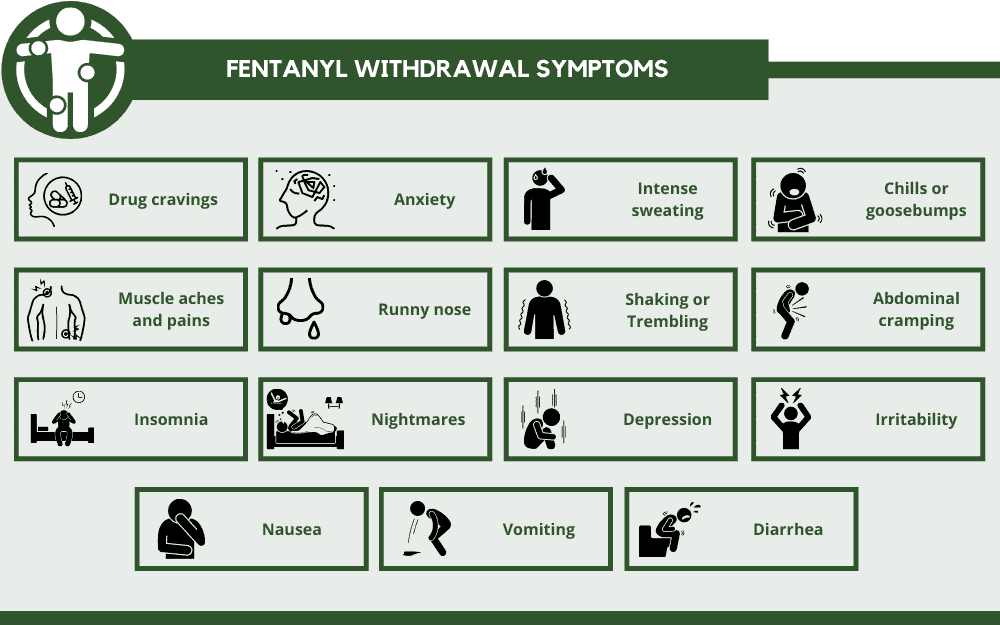
Medication-Assisted Treatment (MAT) for Fentanyl Addiction
Woburn Addiction Treatment Center in the Boston area uses medication-assisted treatment (MAT) to help individuals overcome opioid use disorder. MAT refers to an approach combining different medications, behavioral therapy, and counseling. According to SAMHSA, MAT is thought to provide a more comprehensive, individually-tailored, and whole-person approach compared to traditional treatment methods.
Buprenorphine and naltrexone are the two most widely used medications to treat fentanyl abuse. Buprenorphine is a partial opioid agonist-antagonist that helps ease withdrawal symptoms and drug cravings. It comes in a monthly injection called Sublocade, a daily pill called Subutex, or a daily sublingual/buccal film called Suboxone (buprenorphine and naloxone). Naltrexone, on the other hand, is an opiate antagonist that blocks opioid receptors and reduces drug cravings. It comes in the form of a daily pill called ReVia or a monthly injection known as Vivitrol.
These medications are used alongside behavioral therapy and counseling to address the physical, mental, and emotional aspects of addiction and recovery. When combined with an individualized treatment program, medication-assisted treatment can improve treatment retention rates and treatment outcomes, reduce the risk of overdose, and help patients successfully overcome their addictions.
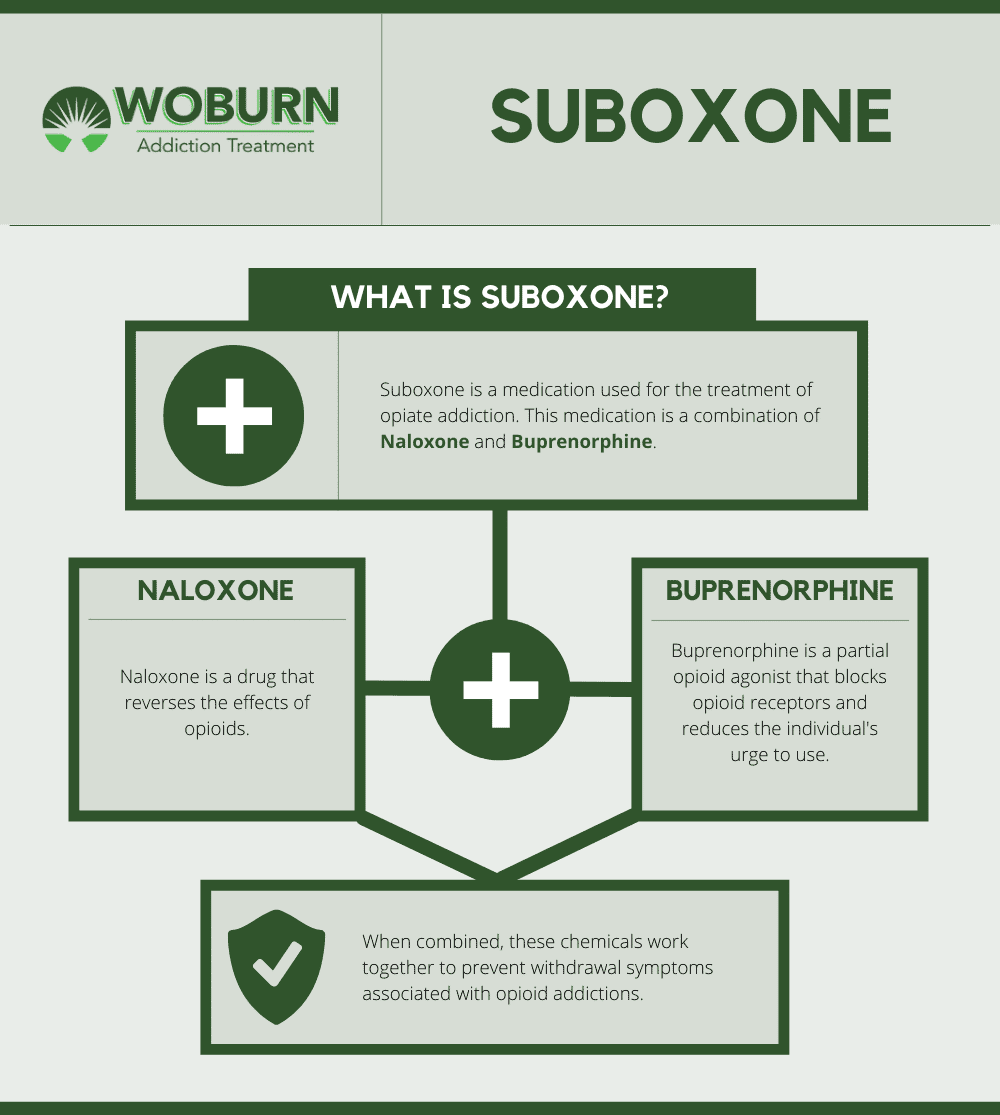
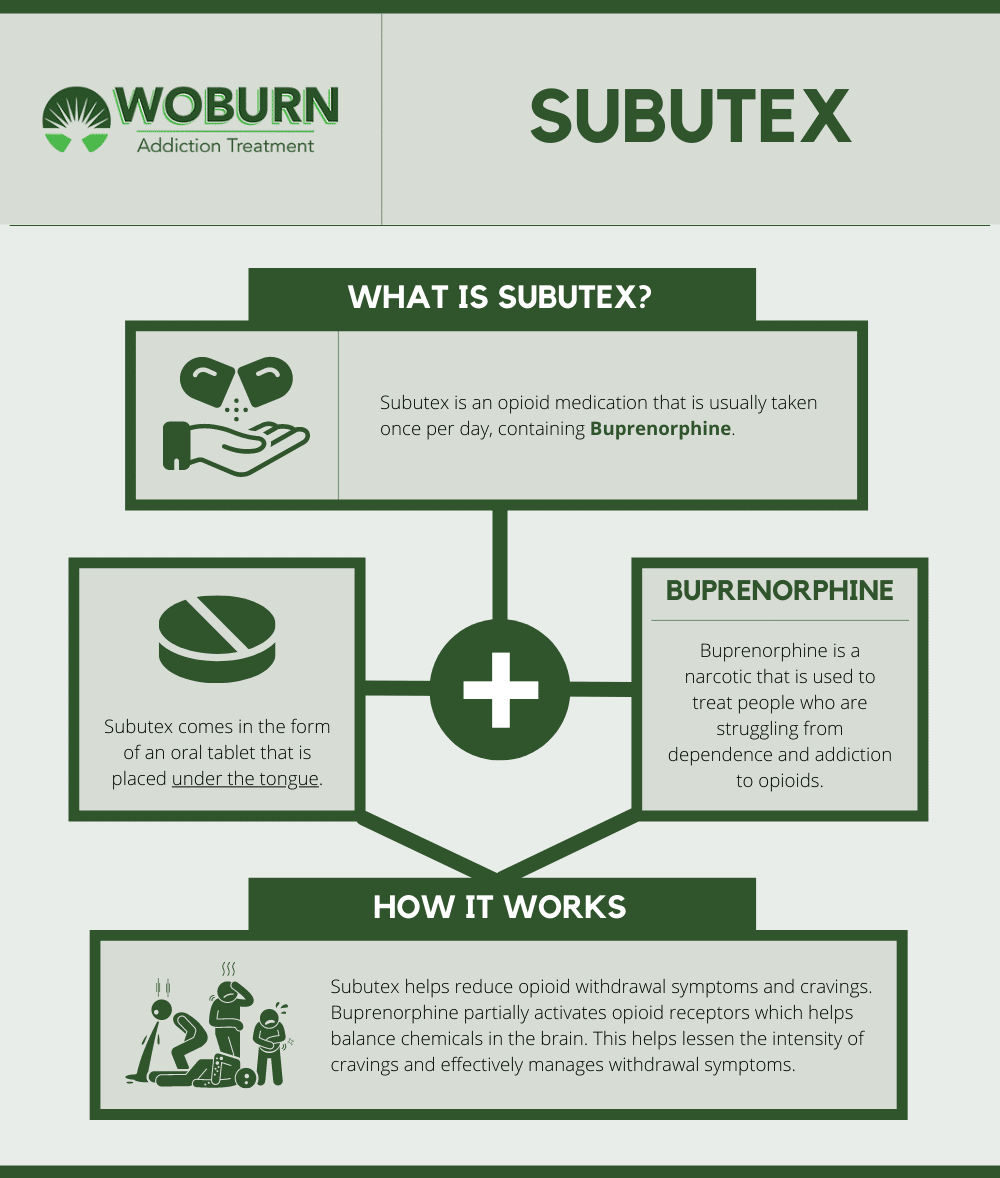
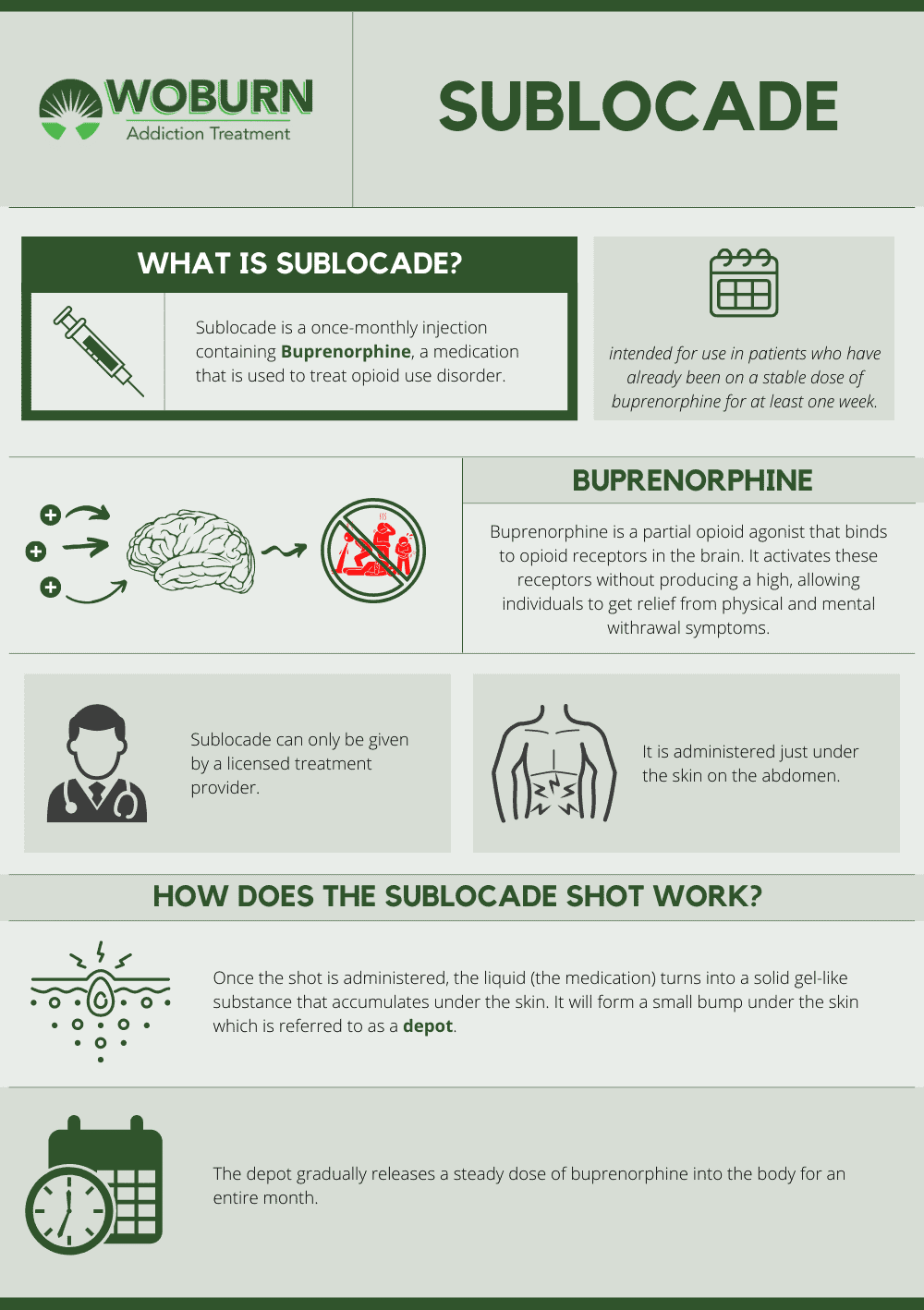
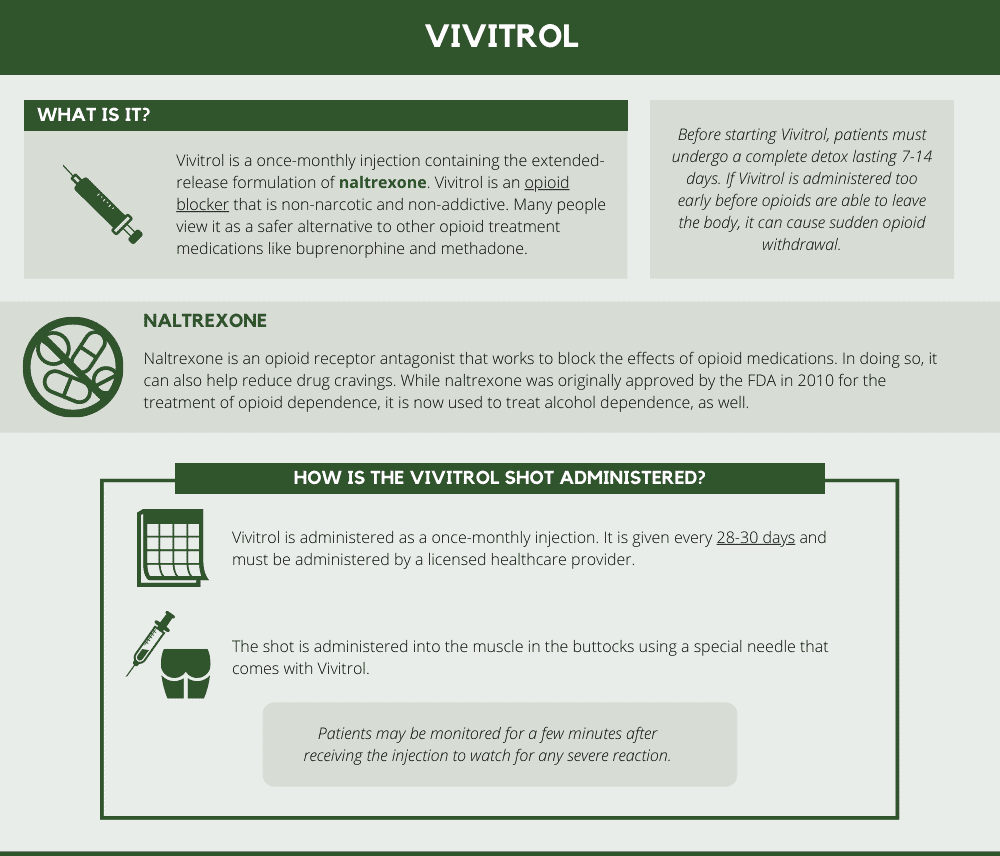
Addiction Recovery and Treatment Options
At Woburn Addiction Treatment, our approach to fentanyl addiction treatment is anchored in a comprehensive range of treatment programs that are tailored to address the complexities of opioid drug dependencies, including fentanyl rehab and heroin addiction. Understanding the powerful grip of these substances, our rehab center offers a blend of medical and psychological therapies designed to tackle both the physical and mental health aspects of addiction.
Our specialized fentanyl rehab program provides a supportive and structured environment where individuals can embark on their recovery journey with the guidance of experienced professionals. Emphasizing the importance of personalized care, our treatment programs focus on individual needs, ensuring that each person receives the support necessary to overcome their addiction and reclaim control of their life. Our commitment is to offer a path to recovery that is as compassionate as it is effective, helping individuals to break free from the cycle of addiction and move towards a healthier, substance-free future.

Individualized Counseling and Evidence-Based Therapy
Medications alone are not the solution to getting a fentanyl addiction treated. They simply treat the physical and some of the mental aspects of addiction. Counseling, on the other hand, helps patients recognize and overcome the underlying causes of their substance abuse. For instance, some people abuse drugs to cope with trauma or severe pain. Others abuse drugs to cope with mental illness, resulting in complications of co-occurring disorders. These underlying conditions must be treated thoroughly for patients to stay sober.
Therapy and Counseling Options for Opioid Use Disorders
Depending on the patient’s needs, they may participate in any or all of the following types of counseling and therapy:
- Behavioral therapies such as cognitive-behavioral therapy (CBT), motivational interviewing (MI), and contingency management (CM)
- Holistic therapies such as yoga, meditation, nutritional counseling, and art therapy
- Family therapy
- Recreational or adventure therapies that involve healing with nature or play
- Mental health counseling
- Trauma therapy or trauma-informed care
- Relapse prevention therapy
Counseling sessions are held in both groups and one-on-one settings. Most of the time spent in our rehab centers is spent engaging in some type of therapeutic healing.
Addiction is a chronic and progressive illness. Like other chronic conditions, it cannot be cured, even with counseling and medication. However, it can be treated and managed on a long-term basis. Before leaving Woburn Addiction Treatment, patients meet with their substance abuse counselor to create a detailed relapse prevention and aftercare plan that helps address their specific needs.

Get The Care You Need and Deserve
Woburn Addiction Treatment is a leader in the addiction treatment field, with proven success in facilitating long-term recovery. Our team of top clinical & medical experts specializes in treating addiction coupled with mental illness, ensuring that each person receives individualized care. Call us – we’re available 24/day, 7 days/week.
Other Options for Long-Term Recovery From Opioid Addictions:
- Alumni Programs
- 12-Step Groups (AA, NA, CA, etc.)
- SMART Recovery
- Individual Counseling
- Recovery Coaching
- Medication Management
A Long-Term Plan to Overcome Fentanyl Addiction: Drug Rehab Aftercare
At Woburn Addiction Treatment, we understand that overcoming fentanyl addiction is a long-term journey, extending far beyond the initial phase of fentanyl rehab. Our commitment to each patient’s lasting recovery includes a comprehensive drug rehab aftercare plan, emphasizing the importance of sober living. Recognizing the close link between fentanyl abuse and heroin addiction, our aftercare strategies are designed to support patients as they navigate the challenges of life post-treatment. This involves a strong focus on maintaining sobriety, managing triggers, and continuing to build on the coping skills learned during rehab. Our aftercare program includes access to supportive resources, ongoing counseling, and connections to sober living communities, ensuring that our patients have a solid foundation for sustained recovery and a fulfilling life free from addiction.
Supporting Your Loved One

Family members play an important role in creating a safe space and aiding the recovery process. It is important to be prepared to support your loved one’s lifelong recovery. Preparing yourself by learning more about addiction and important tips that can be life saving for your loved one. Family members can take precautions in the event that an overdose occurs buy carrying and learning how to dispense naloxone. Naloxone, commonly referred to as Narcan, can come in the form of nasal sprays and be a lifesaving measure in the event of overdose.
Get Fentanyl Addiction Treatment in the Boston Area Today
Fentanyl is not only addictive, it is also dangerous. Just a tiny amount can lead to an overdose or death. If you are using drugs of any kind, you could even find yourself accidentally using fentanyl and experiencing an overdose. The best way to stay safe is to find help for substance abuse.
By seeking out a rehab center today you can avoid the immediate dangers associated with fentanyl addiction and discontinue your ability to obtain fentanyl and other prescription opioids. With the rise of illegally manufactured fentanyl, the risk of a fentanyl overdose is overwhelmingly high. By surrounding yourself with caring and expert professionals, you can find yourself in a safe space at Woburn Addiction Treatment to combat the withdrawal symptoms of fentanyl addiction.
Combat Fentanyl Use Disorder at Woburn Addiction Treatment
If you or a loved one are addicted to fentanyl, you’ve come to the right place. Woburn Addiction Treatment offers fentanyl addiction treatment programs in the Boston area that can provide you with the support you need. With specialized care options, you can not only find treatment for fentanyl use but address any potential co-occurring mental illnesses. Don’t wait any longer. Call now to speak with an addiction recovery specialist to see if our opioid rehab program is right for you.


